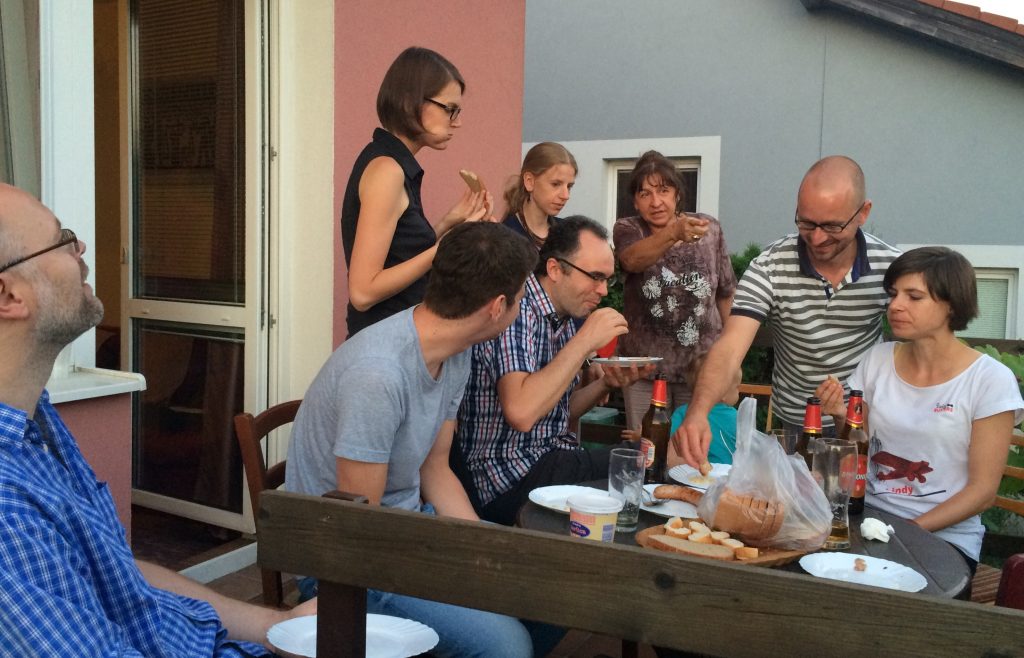Lost in Translation
I had a brief moment to jot down a musing today… as with most musing posts, the pictures are just added to give a general feel, nothing more than that..
I find it fascinating when surrounded by multi lingual people who can move from Czech to German to English in a conversation. You can hear when they switch from one language to the next to best capture a word or a phrase or a saying – and that spur of the moment decision that one language is better able to express their thoughts than another has always amazed me. I know many times it is due the greatest common denominator of languages, or social pecking order of the participants. Sometimes it is best to use a language that is associated with the location, and sometimes there are no easy translations, like jokes, that make the choice of language singular. Whatever is left over from these options usually comes down to a feeling that this language best represents how to say what I am feeling – and this conclusion fascinates me. It’s like having an underlying sub-current of culture hidden away in the shadows of the words and their meanings. It’s like thinking the world is digital with Webster like dictionaries only to wake up and find that it truly is analog with shades of meanings and innuendos and cultural allusions that give a richness in meaning at the sub decimal level. And I’m finding more of a world in the sub discrete level – e.g. There is more richness between flattery and fawning than there is between flattery and dismissal.
Being mono lingual, hearing a foreign language is nothing but a fluttering of syllables and clicks interspersed with English words and phrases only on occasion. It’s fun to rely on inference and primitive social understanding to guess the context that has sparked a conversation – something you are abandoned to when you can only translate the “buts” “because”s and “I knows” of the conversation, but no noun or abstract thought to weigh it down with.
Not understanding allows the brain to focus on all the body queues and situational emotional awareness to pick up meaning from gestures and tones, when all abstract thoughts remain out of reach. It makes you realize what a monumental step in evolution language is to exist in this foggy state of just tone and body language. It also is clear just how much language is a foundation (the foundation) for that fragile thing we call consciousness.
The news had a report of a man who slowly was losing brain cells to liquid accumulating in his head, over the course of 30 years. The man was very marginally retarded but otherwise fully conscious and lived a normal life. Finally having a headache, he went in to the doctor. An X Ray later and they discovered 85% of his brain mass was gone, leaving only a thin border of gray matter around the edge of the skull. I am willing to bet that language processing was where the majority of function was transmuted to, as with language the brain could maintain function and consciousness.
This variation among languages is also the reason why I so much love etymology. It is like finding dinosaur bones of past cultures with your every communicated breath. It is a richness just below the surface if you just bother to look – a richness to see the differences between languages when you discover how the same word evolves very differently in different languages (like comparative religion, only here, comparitive etymology).
Take for instance the word for strawberry… it is very different in other languages. Jahoda in Czech. Erdbeere in German. Fraise in French. What richnesses in stories are hidden here? How are these stories and their differences indicative of their respective cultures? The German word for red current – Johannisbeere – comes from St. John The Baptist. And yet not the english, which comes from the “grapes of Corinth”. The English draw a line direct to the State of Rome, while the Germans honor their religion. (Yes, if I had another life, I’d strike out a path to deeply explore comparative etymology.)
Also in this line of thought, I have always found it fascinating to see which words, when listening to true bilinguals conversing in a non english language, that the speakers fall back to in english. An obvious reason would be technical words, as there are frequently no translations. But what about the others? It is as if these english words have more weight and that the closest translation in the foreign language is insufficient.
Take the simplest example of “OK” which has become near universal. Strangely, do other languages really lack an equivalent? Claro in Spanish, d’accord in French come close – but not exactly, otherwise so many French and Spanish speakers would not have adopted OK. Is there something uniquely English behind the concept of OK that has caused its existence in the English language and no other – to the point of it immigrating to the other languages to cover the missing spot in their lexicon? Are the English people the best at noncommittal agreement to statements?
Along those lines, here is smattering of english words and phrases I captured in a Czech conversation:
- Thrive
- Relationship
- Analysis by paralysis
- He has my back
- Infrastructure
- Risk
- At the end of the day
- Larger than the individual
- Supermarket
- Nobody knows
- Main reason
- Office
- Cannot live without you
So each of these were chosen because the moment meant that the Czech language was insufficient to capture the full meaning, yet these English words were. This is a gold mine for amateur ethnographers like myself. Why are these concepts and phrases easier to grasp and express in English and not Czech? I could have great fun stepping through each of these… but suspect I may not still be married come morning. To that end, perhaps it’s best to stop now.


